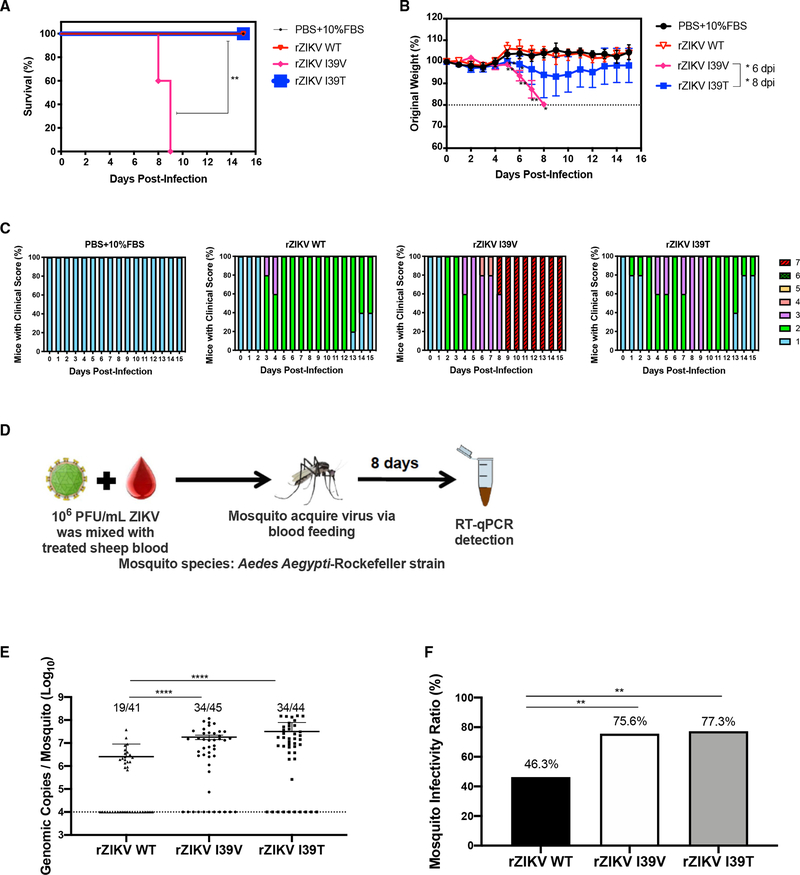Figure 4. I39V and I39T mutations differentially affect ZIKV virulence in DENV-immune Ifnar1−/− mice but both mutations enhance ZIKV fitness for transmission and replication in mosquitoes.
(A–C) DENV2-immune Ifnar1−/− mice were generated by intraperitoneal injection of 103 FFU DENV2 strain S221 for 30 days, and groups of mice were then injected intra-footpad with PBS/10% FBS or 104 FFU of rZIKV-WT, rZIKV-NS2B-I39V, or rZIKV-NS2B-I39T strains. Animals were monitored daily for survival (A), weight loss (B), and clinical score (C). Animals that lost >20% of their initial body weight were euthanized (n = 5 mice/group).
(D) Experimental scheme for infection of mosquitoes via simulated blood feeding. A. aegypti (Rockefeller) mosquitoes were allowed to feed for 30 min on a sheep blood–virus mixture containing 106 PFU/mL of rZIKV-WT, rZIKV-NS2B-I39V, or rZIKV-NS2B-I39T strains using the Hemotek membrane blood-feeding system. Eight days later, mosquitoes were analyzed.
(E) RT-qPCR quantification of rZIKV RNA levels normalized to mosquito actin mRNA levels. Dotted line indicates the threshold for designation as infected (104 genomic copies/mosquito), which was used for calculating the infectivity rates in (F). Data are presented as the mean ± SEM of the indicated number of mosquitoes and were pooled from two independent experiments (symbols represent individual mosquitoes).
(F) Percentage mosquito infectivity ratios ([infected number/total number] × 100). Data are presented as the mean ± SEM and were pooled from two independent experiments. *p < 0.05, **p < 0.01, ****p < 0.0001 by Gehan–Breslow–Wilcoxon test (survival), two-tailed Mann–Whitney test (body weights and genomic copies/mosquito) and Fisher’s exact test (mosquito infectivity ratio).

